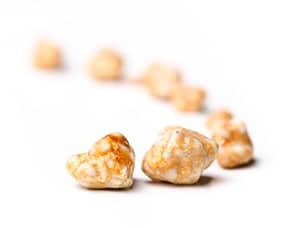A kidney stone is a solid piece of material that forms in the kidney from substances in the urine. It may be as small as a grain of sand or as large as a pearl. Most kidney stones pass out of the body without help from a doctor. But sometimes a kidney stone will simply not go away. It may get stuck in the urinary tract, block the flow of urine and cause a great deal of pain.
Symptoms
You may not have symptoms until the stones move down the tubes (ureters) through which urine empties into your bladder. At this point, you may experience one or several of the following signs and symptoms:
- Severe pain in the side and back
- Pain that spreads to the lower abdomen and groin
- Pain that comes in waves and fluctuates in intensity
- Painful urination
- Cloudy or foul-smelling urine
- Nausea and vomiting
- Fever and chills if an infection is present
- Urinating small amounts of urine
What Causes Kidney Stones?
There are a few factors that can cause kidney stones; one of the most common is excess calcium. While calcium is a nutrient your body needs, if you get too much or your body’s processing systems are imbalanced, calcium can accumulate in the kidneys and bind with phosphates and oxalates to develop stones. Other causes of kidney stones include acidic urine, kidney infections, and genetic predisposition.
How Are Kidney Stones Diagnosed?
The first step in diagnosing kidney stones is with a physical exam and an assessment of known risk factors. Next, the following tests may be performed in order to detect the stones and identify the underlying cause:
- Blood test Blood tests look for elevated levels of crystal-forming substances (uric acid and calcium) in the blood, and also evaluate kidney function.
- Urinalysis This test measures the levels of crystal-forming and crystal-inhibiting components in urine, and detects actual kidney stone. Urinalysis also tests for a urinary tract infection, which can lead to struvite stones.
- Imaging Kidney stones or a blockage along the urinary tract are visualized by computerized tomography (CT), X-ray, or ultrasound techniques.
Treatment
Treatment for kidney stones depend on the type of stone you have and your level of discomfort. Small stones can usually be passed from the body by drinking plenty of water (over 2 liters daily) and using pain medication (over-the-counter or prescription), as needed. The following are common treatments for patients with large stones or severe symptoms:
Medication Pain relief may require narcotic medications. The presence of infection requires treatment with antibiotics. Other medications include:
- allopurinol for uric acid stones
- diuretics
- sodium bicarbonate or sodium citrate
- phosphorus solutions
Shock wave lithotripsy This procedure helps break up larger stones by using strong sound vibrations. Once crushed, the small crystal fragments can be passed through urine.
Percutaneous nephrolithotomy During this surgical procedure, a thin tool is passed through the patient’s back and into the kidney, where it can remove kidney stones.
Ureteroscopy When a stone is stuck in the ureter or bladder, your doctor may use a thin instrument called a ureteroscope to remove it. A small wire with a camera attached is inserted into the urethra and passed into the bladder. A small cage is used to snag the stone and remove it. The stone is then sent to the laboratory for analysis.
Prevention
The best way to avoid kidney stones is to prevent its most common cause – dehydration. Proper hydration is a key preventive measure. Drinking more fluids increases the amount of urine you pass, which helps to flush the kidneys. You may also need to take certain medication(s) as prescribed by your doctor to help prevent the formation of calcium and uric acid stones.


